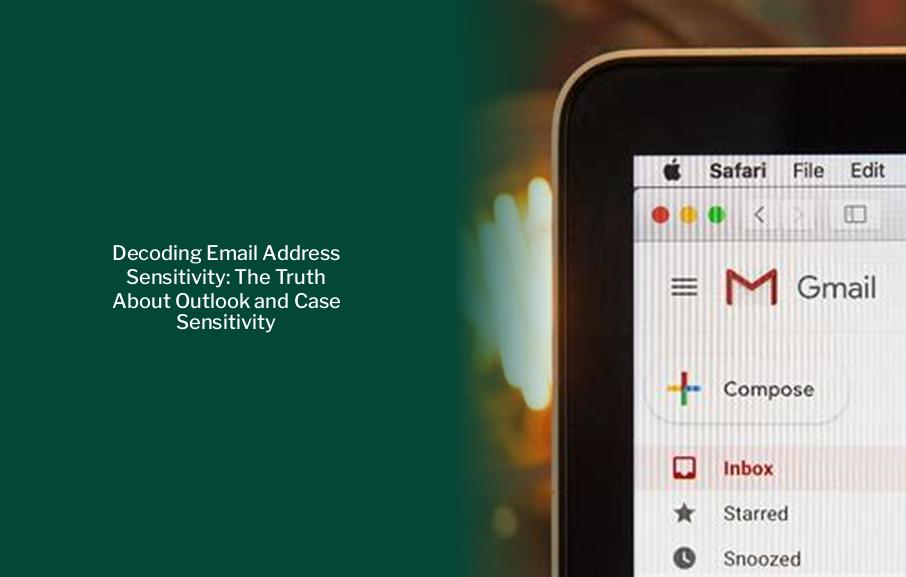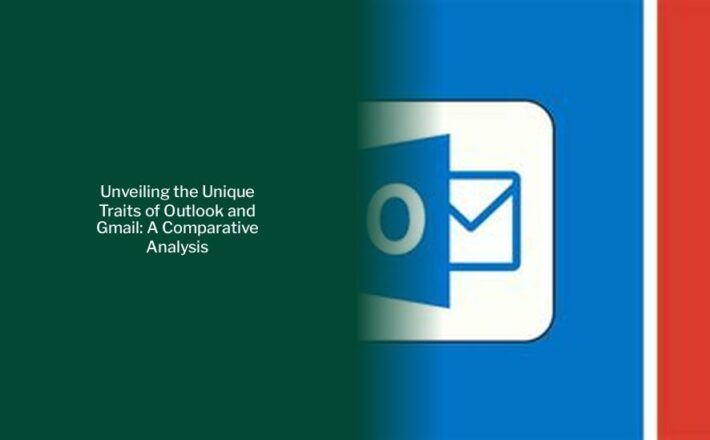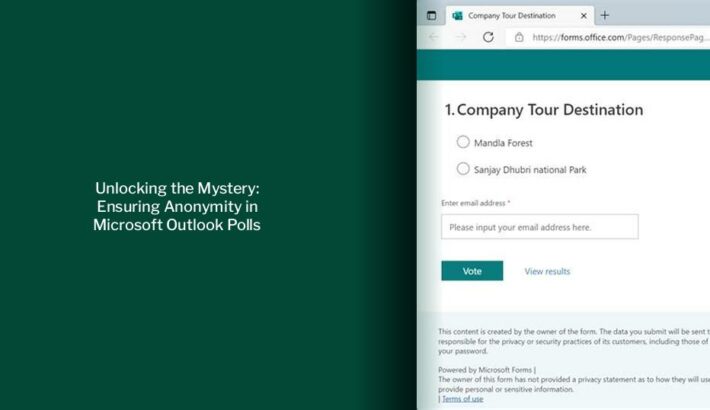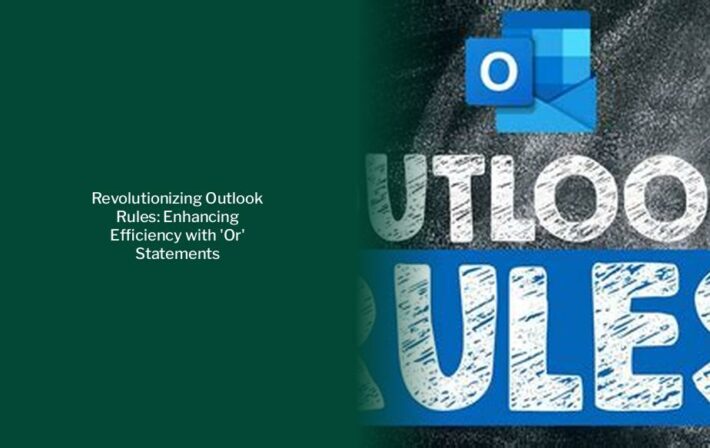Decoding Email Address Sensitivity: The Truth About Outlook and Case Sensitivity

Key takeaways :
- Email addresses are not case sensitive, so using the wrong case isn’t the reason for bounced emails.
- While case doesn’t affect email addresses, other factors like character type and readability can impact deliverability and open rates.
- Most major email providers like Gmail and Outlook are not case sensitive, but some large companies may implement case sensitivity for specific reasons.
- Offer clear instructions and support resources to users to help them navigate potential issues related to case sensitivity or email address handling.
- Use lowercase letters when sharing email addresses to minimize confusion and errors.
Understanding Email Address Case Sensitivity

Are outlook email addresses case sensitive? No, email addresses are not case sensitive. Using the wrong case isn’t why your emails might be bouncing. All you have to worry about is whether the characters are all there. While case doesn’t affect email addresses, the kind of character, readability, and other best practices will affect your deliverability (and whether or not your emails get opened). So here’s what you need to know about emails, email addresses, and how to make sure your emails end up in front of your customers.
Clarifying Email Address Sensitivity
Discover – Safeguard Your Email: Are Outlook Ads Safe? Unveiling the Truth and Solutions
— Unlocking the Mystery: Locating and Managing Outlook Contacts Stored Locally
Technically, the answer is yes. However, email addresses are typically not case sensitive; if you type your email address into a form and accidentally capitalize one or two letters, it probably won’t prevent the sender from emailing you. To find a definitive solution, we must investigate the problem in greater detail. To do this, let’s first consider the structure of an email address at its most fundamental level before learning the various regulations that apply to the local and domain parts.
Components of an Email Address
An email address is composed of two main parts:
Most big email providers like Gmail, Outlook, and even company email addresses hosted on Google Suite are not case sensitive. Just to avoid any unnecessary confusion. However, in extreme cases, some large companies implement case sensitivity on their server as some people can often have the same first and last name. But in general, this creates more confusion than usability, which is why most standard email providers avoid case sensitivity. To test this theory, I did a quick experiment.
Help and Support for Email Address Sensitivity
Offer clear instructions and support resources to users to help them navigate potential issues related to case sensitivity or email address handling. Educating users can lead to smoother communication experiences.
General Tips to Avoid Confusion and Errors:
- Use Lowercase. To minimize confusion, use lowercase letters when sharing email addresses in printed materials, websites, or business cards.
- Use Dashes or Underscores. If you want to separate words in an email address, consider using dashes (-) or underscores (_) instead of spaces or periods, as these can sometimes be misinterpreted.
The domain name in an email address is not case-sensitive, meaning it doesn’t matter whether you use upper or lower case letters. The same applies to usernames, although outdated email servers can misinterpret capitalization in rare cases. For simplicity’s sake, the best practice is to use only lowercase letters in a username.
Google email addresses ignore the letter case and periods. For example, jsmithe@gmail.com is the same as j.smithe@gmail.com.
Preventing Email Address Confusion
More — Maximizing Outlook Categories: Ensuring Visibility and Efficiency in Email Communication
To minimize the risk of email delivery failures in your email address:
- Set the sensitivity level of a message by following these steps:
- From your draft email message, click File > Properties.
- Under Settings, in the Sensitivity list, select Normal, Personal, Private, or Confidential. The default value is Normal.
- Select Close. When you’re done composing your message, select Send.
The recipients see the following text displayed in the InfoBar of the received message, depending on the Sensitivity setting:
Email Address Sensitivity Across Different Platforms
Gmail
- Case Sensitivity: Gmail email addresses are not case sensitive. This means that emails sent to daffy.duck@gmail.com and Daffy.Duck@gmail.com will be delivered to the same inbox.
- Unique Handling: Gmail also ignores periods within the local part of the email address. For example, daffyduck@gmail.com and daffy.duck@gmail.com are considered the same email address by Gmail.
- Impact for Email Marketers: When managing email lists, marketers should note that Gmail users might use variations of their email addresses with dots or different capitalization. It’s essential to recognize these as belonging to the same contact to avoid duplicates.
— Decoding the Differences: Microsoft Exchange vs. Outlook – Which One Suits You Best?
Yahoo Mail
- Case Sensitivity: Yahoo Mail email addresses are not case sensitive, treating daffyduck@yahoo.com and DaffyDuck@yahoo.com as identical.
- Unique Handling: Unlike Gmail, Yahoo Mail does not ignore periods in the local part. Therefore, daffyduck@yahoo.com and daffy.duck@yahoo.com would be considered different addresses.
- Impact for Email Marketers: For Yahoo Mail users, pay attention to the use of periods in the email address. Marketers should ensure their email list management system can distinguish between genuinely different addresses while recognizing case variations as the same user.
Outlook (formerly Hotmail)
- Case Sensitivity: Outlook email addresses are not case sensitive, following both Gmail and Yahoo Mail. DaffyDuck@outlook.com and daffyduck@outlook.com are treated as the same.
- Unique Handling: Outlook treats periods in the local part of an email address as significant. Therefore, the placement of dots can differentiate email addresses, similar to Yahoo Mail.
- Impact for Email Marketers: When dealing with Outlook email addresses, marketers should consider both the case and the placement of periods in their email list management practices.
There you have it… three of the top email clients have all gone the way of treating email addresses as case insensitive. This is great for ensuring that your emails are making it to the desired inbox regardless of any capitalization inside of the email address.
Another important step is to keep your address appropriate. You don’t want anything that’s inappropriate or not safe for work. Also stay away from things that are politically or religiously sensitive. Your email address in college may have been funny, but it’s probably not appropriate now for business purposes. Trying to be funny can be risky as not everyone shares the same sense of humor. Clean, straightforward, and simple is usually the best strategy with email addresses.



